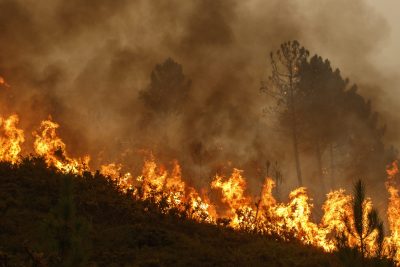The Washington State Department of Health (DOH) is urging people to take precautions, stay cool, and protect themselves ahead of a record-breaking heatwave expected this weekend.
Stay indoors and in an air-conditioned environment as much as possible. Visit friends, family or neighbors with air conditioning or spend time in air-conditioned public places. If you are not fully vaccinated against COVID-19, make sure to wear a mask whenever you’re indoors with people who don’t live with you.
If air conditioning is not available to you, pulling window shades closed throughout the day when the sun is on the windows will help keep the inside cooler. Do not rely on a fan as your only cooling source. While fans might provide some comfort, they won’t prevent heat-related illness when temperatures are very hot. Use your stove and oven less to maintain a cooler temperature in your home.
Stay hydrated. Drink plenty of fluids but avoid beverages that contain alcohol, caffeine or a lot of sugar. Carry water with you and don’t wait until you’re thirsty to drink.
Help those who are vulnerable or at higher risk. Check in frequently with family, friends and neighbors who are elderly, ill or may need help. Avoid dressing babies and children in heavy clothing or wrapping them in warm blankets. Keep outdoor pets safe in the heat, make sure they have protection from heat and sun and access to cold, fresh water. Asphalt gets very hot and can burn your pet’s paws, walk on grass if possible. Never leave any person or pet in a parked vehicle.
If you do go outside, protect yourself from heat and sun. Sunburn slows the skin’s ability to cool itself, so make sure to use sunscreen with a high SPF rating. Wear a wide-brimmed hat and light-colored, loose-fitting clothes. Seek shade in parks and greenspaces where it will be cooler than in paved areas.
If you are working outside, try to plan strenuous activities for early or late in the day when temperatures are cooler. Take frequent breaks and hydrate regularly. Employers should take steps to protect people who work outdoors, including adjusting work schedules and activities, providing access to water and monitoring workers for illness.
If you notice symptoms of heat illness (dizziness, nausea, headaches, muscle cramps), act immediately. Move to a cooler location to rest for a few minutes and seek medical attention immediately if you do not feel better.
Avoid extreme temperature changes. Taking a cold shower right after coming in from the heat or jumping into cold water when swimming outside can cause rapid changes in your breathing, heart rate and blood pressure and even cause hypothermia.
Follow water safety tips if you go swimming or boating. Remember that swimming in open water is very different from swimming in a pool and make sure to wear a life jacket that fits you.
Before lighting any outdoor fires, check for restrictions or warnings in your area. High temperatures and dry conditions increase wildfire risk.
“Hot weather and high temperatures can quickly go from uncomfortable to life-threatening,” said Umair A. Shah, MD, MPH, Secretary of Health. “We can all take steps to reduce our risk of heat exhaustion or heat stroke and help others stay safe.”

